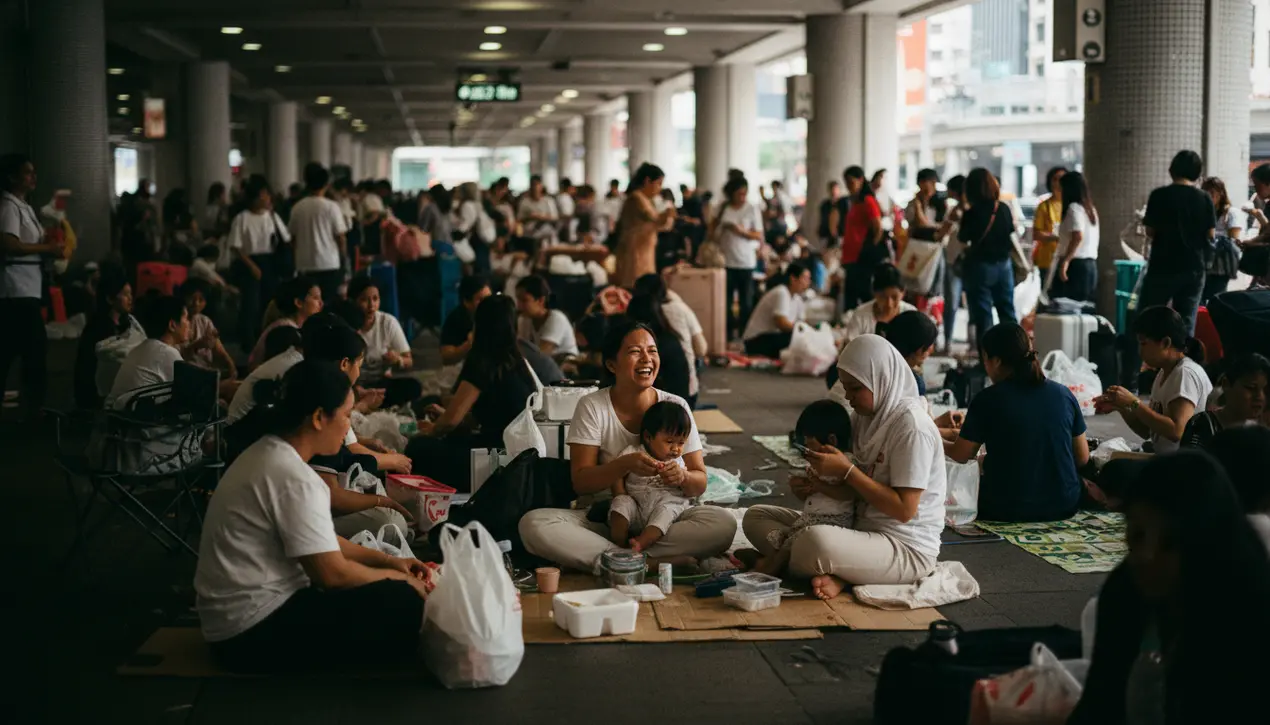
Politicshuman rightsRefugees and Migration
The Lives and Struggles of Foreign Domestic Helpers in Hong Kong
LA
Laura Bennett
3 hours ago7 min read2 comments
If you walk through Hong Kong’s Central district on a Sunday, you’ll see a city within a city. The underpasses and public squares transform into vibrant, makeshift living rooms, filled with the laughter and shared meals of thousands of foreign domestic helpers, predominantly women from the Philippines and Indonesia.This is their statutory day off, a weekly exhalation in lives defined by relentless work. To understand their reality is to listen to their stories, not as statistics, but as human narratives of sacrifice and resilience.Many of these women are mothers who have left their own children in the care of relatives to raise other people’s families abroad, a profound emotional trade-off driven by the promise of economic stability. They send home remittances that become the backbone of their families’ survival, funding education and healthcare, yet this comes at the cost of missing first steps, birthdays, and the daily intimacies of motherhood.Their struggles are systemic, woven into the very fabric of their employment under the city’s ‘two-week rule,’ which mandates they must leave Hong Kong within two weeks of their contract ending, a policy that often traps them in abusive situations for fear of deportation and financial ruin. The live-in requirement blurs all boundaries between work and personal life, with many helpers reporting they are on call 24 hours a day, their small rest periods easily encroached upon by demanding employers.Conversations reveal a spectrum of experiences—from those treated with genuine respect as part of the family to others who describe conditions akin to indentured servitude, with passports confiscated, salaries withheld, and verbal abuse a common refrain. The psychological toll is immense, a constant negotiation between dignity and duty, between the person they are at home and the role they must play in a foreign land.This isn't just a labour issue; it's a profound sociological study in global inequality, where the economies of developing nations are propped up by the exported care of their citizens, who in turn support the dual-income households of a wealthy financial hub. The recent court challenges and nascent union movements signal a slow-burning fight for rights, but the path is steep, tangled in cultural perceptions and economic dependencies. The true measure of Hong Kong’s society may well be found in how it treats these women who hold up its homes, a silent workforce whose collective story is one of the most compelling and heartbreaking human-interest sagas in modern Asia.
#foreign domestic workers
#Hong Kong
#labor rights
#challenges
#migrant workers
#working conditions
#editorial picks news
Stay Informed. Act Smarter.
Get weekly highlights, major headlines, and expert insights — then put your knowledge to work in our live prediction markets.
Related News
Comments
Loading comments...
© 2025 Outpoll Service LTD. All rights reserved.












